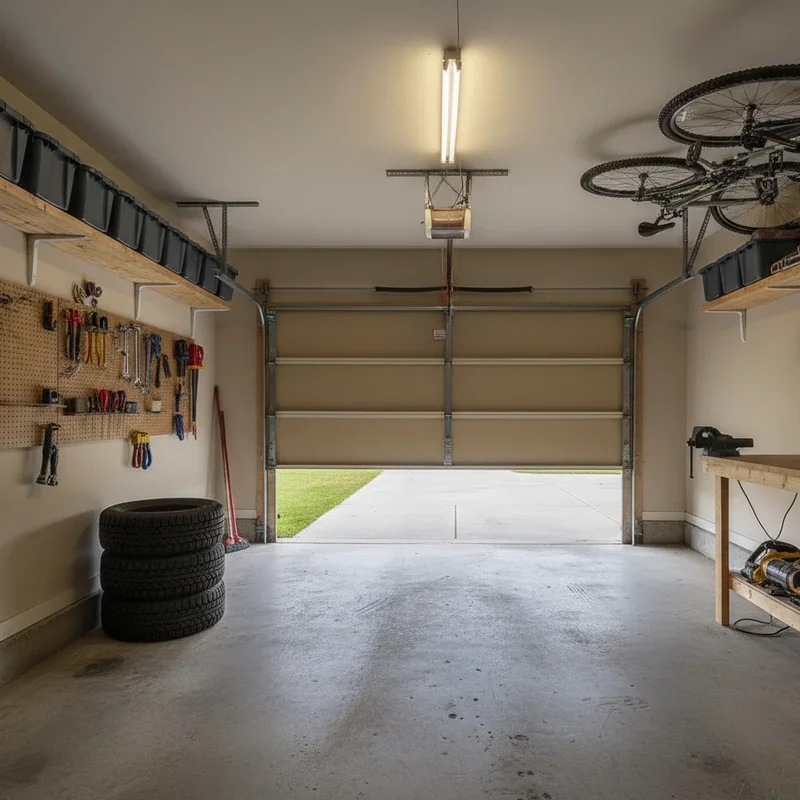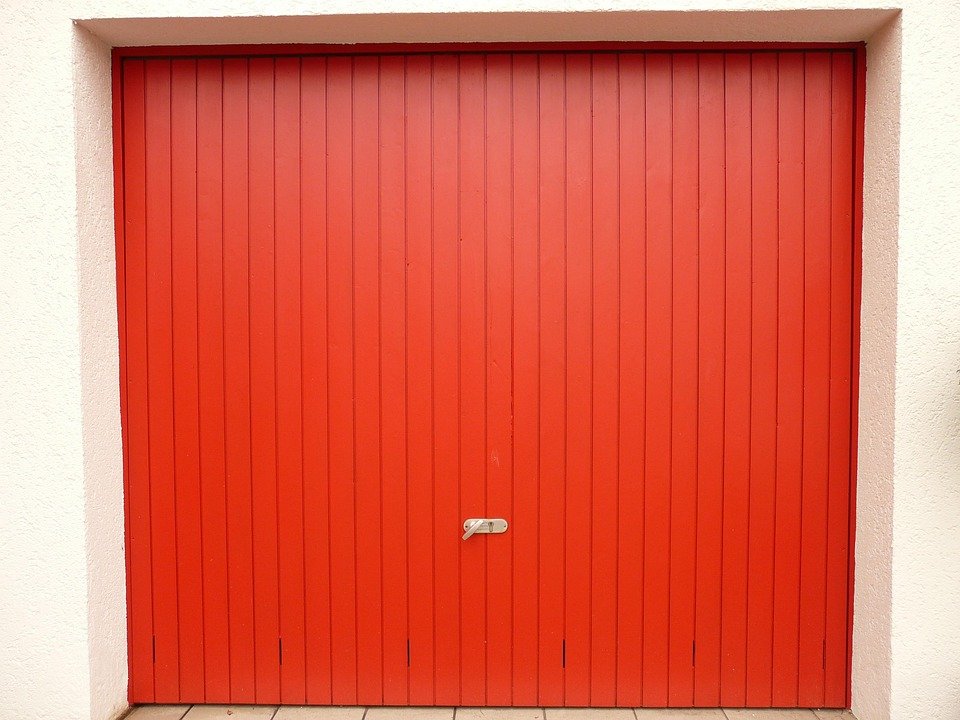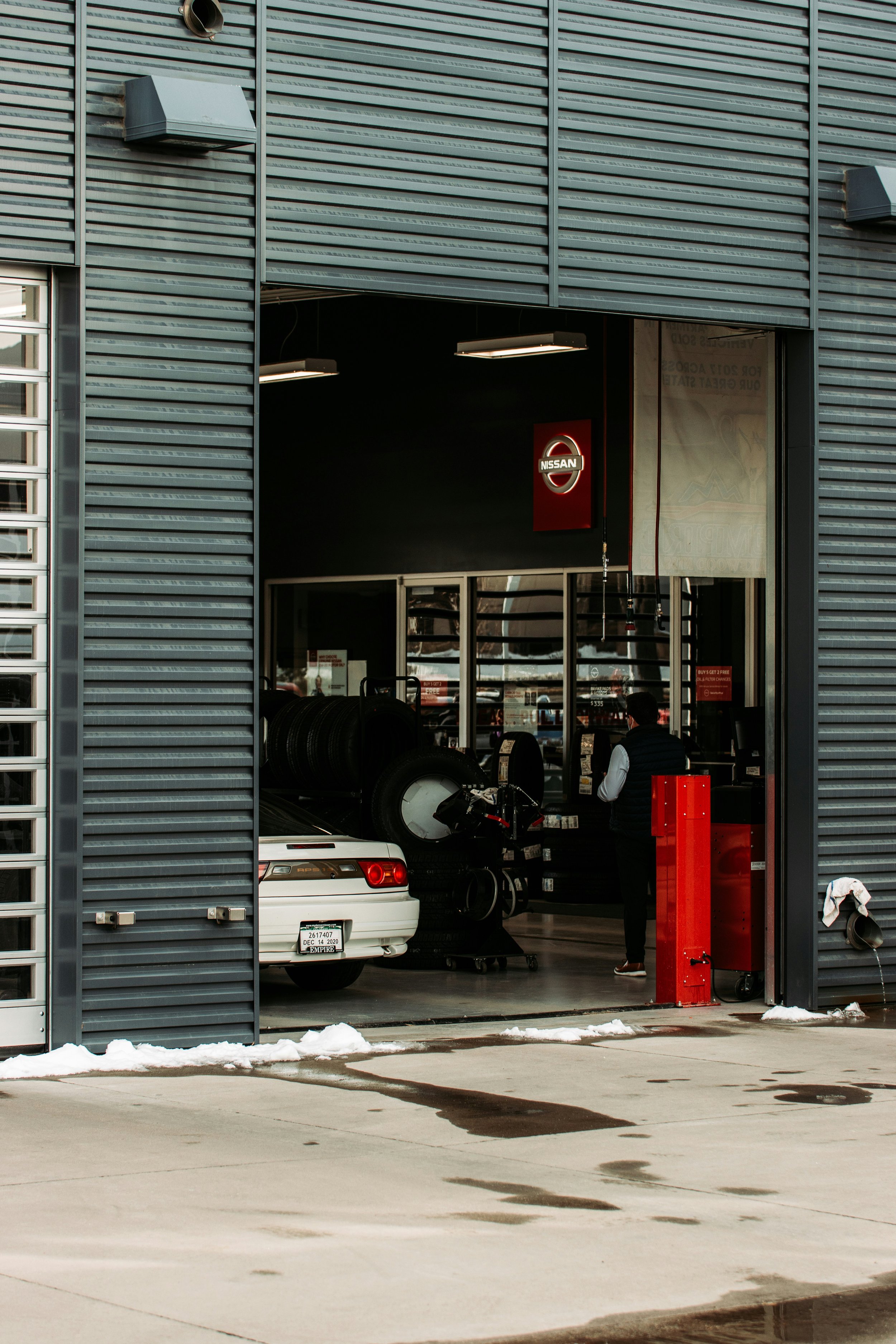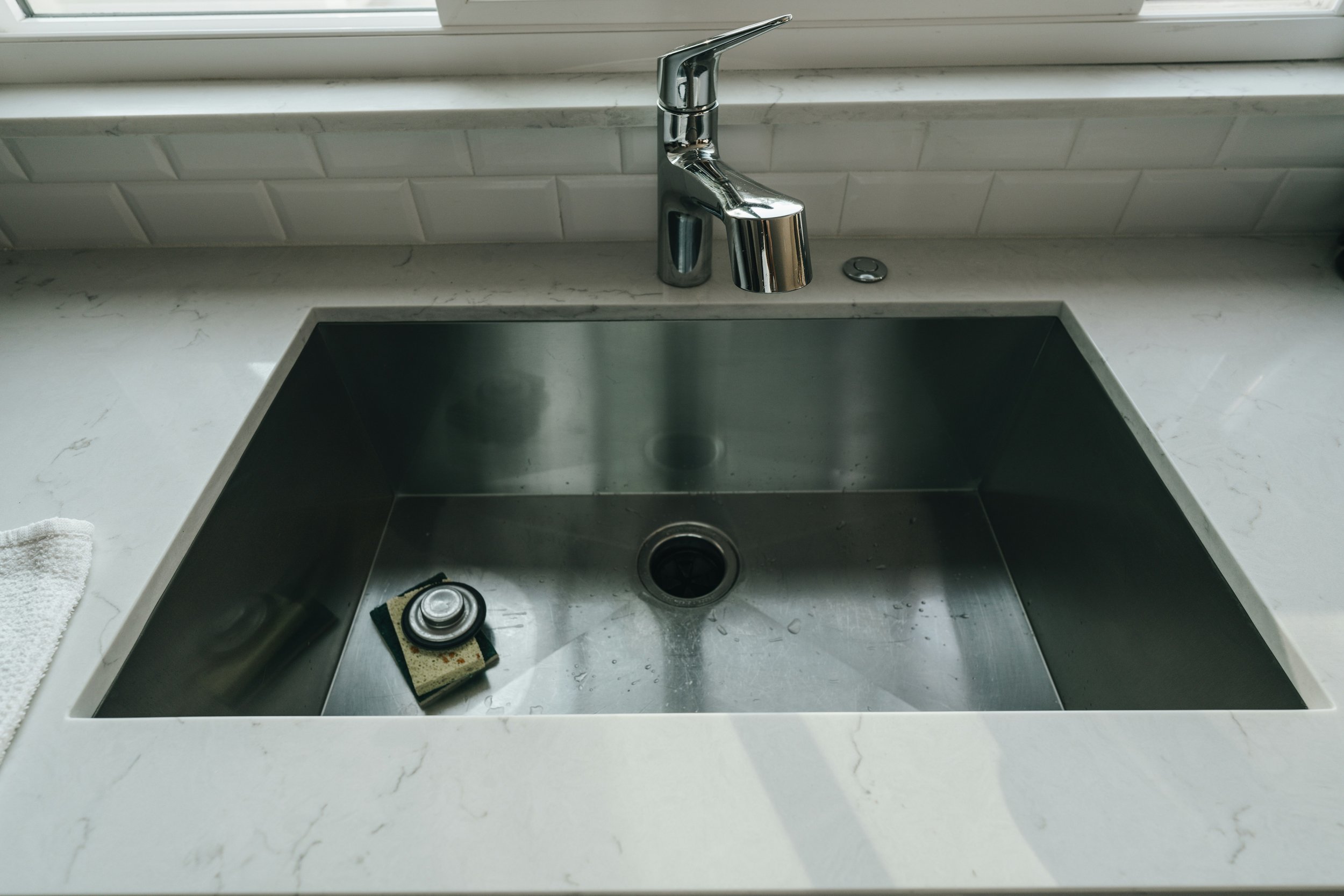How to Get Gas Smell Out of Garage for Fresh Space
Discover how to get gas smell out of garage for fresh space with proven methods. Safe, effective solutions to eliminate fumes fast!
Yikes! There's nothing quite like walking into your garage and getting hit with that overwhelming gasoline smell that makes your eyes water and your head spin. Whether it's from a spilled gas can, a leaky lawnmower, or your classic car project that's been giving you trouble, that pungent petroleum odor can turn your garage from a functional workspace into a no-go zone faster than you can say "ventilation."
Let's face it, gasoline fumes aren't just unpleasant; they're downright dangerous if left unchecked. Those vapors can mess with your health, pose a fire hazard, and seep into your home, making your entire living space smell like a gas station. But here's the good news: learning how to get gas smell out of garage for fresh space isn't rocket science, and you don't need to call in expensive professionals to tackle this stinky situation.
Before you throw in the towel and resign yourself to holding your breath every time you need something from the garage, stick with me. I've been there, done that, and got the ventilation mask to prove it! With the right approach and a bit of elbow grease, you can transform that toxic-smelling space back into the clean, usable area it's meant to be. Whether you're dealing with a fresh spill or battling lingering fumes that seem to have taken up permanent residence, we'll cover all the bases.
Understanding Why Gas Smells Linger
The Science Behind Stubborn Fumes
Here's the thing about gasoline: it's not just one chemical but a complex cocktail of hydrocarbons that love to stick around. When gas evaporates, these volatile organic compounds (VOCs) don't just disappear into thin air. Oh no, they're much more annoying than that! They seep into porous surfaces like concrete, wood, and drywall, creating a reservoir of stink that keeps releasing fumes long after the original spill is gone.
Temperature plays a huge role too. In a hot garage, gasoline evaporates faster, creating more fumes. But paradoxically, cold conditions can make the smell linger longer because the gas doesn't evaporate completely, leaving liquid residue that continues to off-gas slowly. It's like nature's cruel joke on anyone trying to maintain a clean garage!
Common Culprits of Gas Odors
Before diving into solutions, let's identify where these smells typically come from. Sure, the obvious answer is "gasoline," but it's rarely that simple. Lawn equipment is often the biggest offender. That mower you tilted to clean the blade? Yeah, it probably leaked. The weed whacker you hung on the wall? Its tank might be seeping.
Then there's the stuff we forget about: • Old gas cans with deteriorating seals • Motorcycles or ATVs with vented fuel systems • Classic cars with aging fuel lines • Small engines like generators or pressure washers • Contaminated rags or clothing stored in the garage • Absorbed spills in cardboard boxes or wooden shelves
Safety First: Before You Start
Ventilation is Your Best Friend
Alright, before we jump into the cleanup process, let's talk safety because, frankly, gasoline fumes can knock you on your rear if you're not careful. First rule of thumb: open everything! Garage door, windows, side doors, whatever you've got. Create a cross-breeze that would make a wind tunnel jealous.
If you've got fans, set them up to blow air OUT of the garage, not in. You want to push those fumes away, not circulate them around like some toxic tornado. And please, for the love of all that's holy, don't use any electrical equipment near fresh spills. One spark and boom! You've got bigger problems than just a smell.
Personal Protection Matters
I know it's tempting to just dive in and start cleaning, but protecting yourself is crucial. Grab some rubber gloves because gasoline will dry out your skin faster than a desert wind. If the smell is really strong, consider wearing a respirator or at least a good N95 mask. Your lungs will thank you later.
Keep a bucket of water nearby, just in case you get gas on your skin. And here's a pro tip: change your clothes after cleaning up gas spills. Those fumes cling to fabric like a clingy ex, and you don't want to track that smell into your house.
Immediate Actions for Fresh Spills
The Golden Hour Response
When it comes to gas spills, time is absolutely of the essence. The faster you act, the less chance those vapors have to permeate everything in sight. If you've just knocked over a gas can or discovered a fresh leak, don't panic! But don't procrastinate either.
First, stop the source. Sounds obvious, right? But you'd be surprised how many people start cleaning while gas is still leaking. Upright that container, tighten that cap, or move that leaky equipment outside immediately. Then, if there's standing gasoline, don't try to mop it up with regular towels. You'll just spread it around and ruin perfectly good towels in the process.
Absorption Techniques That Work
For liquid spills, cat litter is your secret weapon. Not the fancy clumping kind, just plain old clay cat litter. Dump it generously over the spill and let it sit for at least an hour. It'll soak up the gas like a sponge. Sawdust works great too if you've got it handy, and even baking soda can help with smaller spills.
Once the absorbent has done its job, carefully sweep it into a metal container (never plastic for fresh gas-soaked materials). Don't use your regular household broom though; you'll never get the smell out. Cheap broom from the dollar store? Perfect for this job. After sweeping, that contaminated absorbent needs proper disposal. Check with your local hazardous waste facility because tossing it in your regular trash is a big no-no.
Deep Cleaning Methods for How to Get Gas Smell Out of Garage for Fresh Space
The Degreaser Method
Now that we've handled the immediate crisis, it's time for deep cleaning. Commercial degreasers are fantastic for breaking down petroleum products. Mix up a strong solution according to the package directions, but honestly, I usually go a bit stronger than recommended for gas cleanup.
Apply the degreaser liberally to the affected area and let it sit. We're talking 15-20 minutes here, not a quick spray and wipe. Use a stiff-bristled brush to scrub the concrete, working in circular motions. You'll probably see the solution turn a nasty brown color. That's good! It means it's pulling the gas residue out of the porous concrete.
The Dish Soap Power Wash
Here's something that might surprise you: good old Dawn dish soap is incredibly effective at cutting through petroleum products. There's a reason they use it to clean oil-covered wildlife! Mix up a solution of hot water and a generous squirt of dish soap. We're not talking about a few drops here; make it nice and sudsy.
Pour this mixture over the affected area and let it sit for about 10 minutes. Then scrub like your life depends on it. The surfactants in the soap break down the gas molecules and lift them from the surface. Rinse with hot water and repeat if necessary. Sometimes it takes two or three rounds to really get it all.
Baking Soda and Vinegar Magic
After the initial cleaning, here's where baking soda becomes your best friend. Sprinkle a thick layer over the entire affected area. We're talking snow-on-Christmas-morning thick. Let it sit overnight if possible. The baking soda absorbs residual odors and any remaining moisture that might be harboring gas fumes.
The next day, sweep up the baking soda and follow up with a vinegar solution. Mix equal parts white vinegar and water in a spray bottle. The acid in the vinegar neutralizes remaining odors and helps break down any stubborn residue. Plus, while vinegar doesn't smell great initially, it dissipates quickly, taking other odors with it.
Natural Odor Elimination Strategies
Activated Charcoal Absorption
If you're still battling lingering odors after cleaning, activated charcoal is like a miracle worker. This isn't the same as barbecue charcoal, mind you. Activated charcoal has been treated to be incredibly porous, making it fantastic at trapping odor molecules.
Place bowls of activated charcoal around your garage, especially near where the spill occurred. You can buy it in bulk online or at pet stores (it's used in aquarium filters). Leave the bowls out for several days, stirring occasionally to expose fresh surface area. The charcoal literally pulls odor molecules from the air, trapping them in its microscopic pores.
Coffee Grounds Method
Weird but true: coffee grounds are excellent at absorbing odors. Fresh grounds work better than used ones, but both will help. Spread them in shallow pans around your garage. The nitrogen in coffee helps neutralize odors, and the grounds themselves are porous enough to trap smell molecules.
Replace the grounds every few days until the smell is gone. Bonus: your garage will smell like a coffee shop instead of a gas station! Just don't use your expensive artisan coffee for this. The cheap stuff from the discount store works just as well.
Ventilation Solutions for Long-Term Freshness
Creating Air Flow Patterns
Getting rid of gas smell isn't just about cleaning; it's about moving air effectively. If your garage has windows, open them strategically to create cross-ventilation. Hot air rises, so opening high windows or vents helps pull fumes up and out. Meanwhile, cooler air comes in from lower openings, creating a natural circulation pattern.
Consider installing a garage exhaust fan if you don't have one. Mount it high on the wall opposite your main garage door. When you run it, open a window or crack the regular door slightly to allow fresh air in. This creates negative pressure that pulls contaminated air out while drawing fresh air in.
The Box Fan Hack
Here's a temporary solution that works surprisingly well: the box fan window setup. Place a box fan in a window blowing outward. Seal around the fan with cardboard or plastic to prevent air from flowing back in around it. Open another window or door on the opposite side of the garage for intake.
Run this setup for several hours a day until the smell dissipates. It's not pretty, but it's effective and way cheaper than professional ventilation systems. Just remember to remove the fan during rain or when you're not home.
Prevention Tips to Avoid Future Gas Smells
Proper Storage Solutions
Once you've conquered the current smell situation, let's make sure it doesn't happen again. Proper storage is key to keeping your garage fresh. Store gas cans in a well-ventilated area, preferably in a storage shed outside the garage. If they must stay in the garage, keep them in a metal cabinet designed for flammable liquids.
Check your equipment regularly for leaks. That includes: • Tightening gas caps on all equipment • Inspecting fuel lines for cracks or deterioration • Keeping equipment clean to spot leaks easily • Storing equipment with minimal fuel during off-seasons • Using fuel stabilizer to prevent degradation
Maintenance Schedules
Create a monthly garage inspection routine. Look for new stains, check stored fuels, and sniff around for developing problems. It's way easier to deal with a tiny leak before it becomes a major spill. Mark your calendar if you have to; your future self will thank you.
Professional Solutions When DIY Isn't Enough
When to Call the Experts
Sometimes, despite your best efforts, that gas smell just won't budge. If you've tried everything and the odor persists for more than a week, it might be time to call in professionals. This is especially true if the smell is getting into your house or if you're experiencing headaches, nausea, or other symptoms.
Professional restoration companies have industrial-strength equipment like ozone generators and hydroxyl generators that can eliminate stubborn odors at the molecular level. Yes, it costs more than DIY methods, but it's worth it for your health and sanity.
Cost-Effective Professional Alternatives
Before shelling out big bucks for restoration services, consider renting professional equipment. Many equipment rental places have ozone generators you can rent by the day. These machines produce ozone that breaks down odor molecules. Just be sure to follow safety instructions carefully, as ozone can be harmful if not used properly.
How to Get Gas Smell Out of Garage for Fresh Space: The Complete Timeline
Day 1-2: Emergency Response
The first 48 hours are critical. Focus on containing spills, absorbing liquids, and establishing ventilation. This is when you'll do your initial cleaning with degreasers and dish soap. Don't expect the smell to disappear immediately; you're laying the groundwork for success.
Day 3-7: Deep Cleaning Phase
This is when you bring out the big guns: multiple cleaning rounds, baking soda treatments, and vinegar applications. Keep ventilation going strong and start using odor absorbers like activated charcoal. You should notice significant improvement by the end of the first week.
Week 2 and Beyond: Maintenance Mode
Continue with odor absorbers and ventilation until the smell is completely gone. This might seem like overkill, but thoroughly eliminating gas odors prevents them from returning when temperatures change or humidity levels fluctuate.
Conclusion
Learning how to get gas smell out of garage for fresh space takes patience, persistence, and the right approach. From immediate spill response to long-term prevention strategies, tackling gasoline odors requires a comprehensive plan. Remember, safety comes first, ventilation is crucial, and sometimes multiple cleaning methods are necessary. With these techniques in your arsenal, you can transform that fumey garage back into a fresh, usable space that won't make you hold your breath every time you enter.
Read next: How to Oil a Garage Door: Step-by-Step Guide
Frequently Asked Questions
Q1: How long does gasoline smell typically last in a garage?
A: Without treatment, gas smells can linger for weeks or even months in garages.
Q2: Is it safe to use bleach to clean gas spills?
A: No, never mix bleach with gasoline as it can create dangerous toxic fumes.
Q3: Can gas fumes in the garage affect my home's air quality?
A: Yes, fumes can seep through walls and doors into living spaces over time.
Q4: What's the fastest way to eliminate fresh gas odors?
A: Immediate absorption, ventilation, and degreaser application work fastest for fresh spills effectively.
Q5: Should I use an ozone generator for gas smells?
A: Ozone generators work well but require proper safety precautions and temporary area evacuation.









